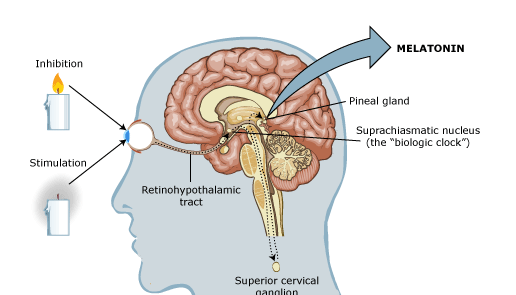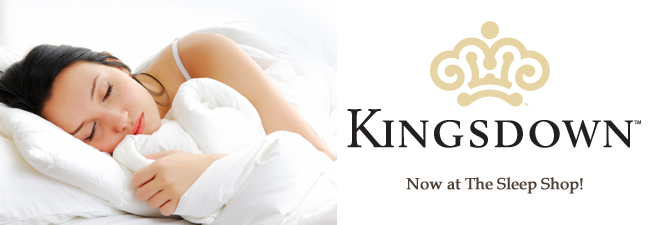According to the National Sleep Foundation, the pattern of waking during the day when it is light and sleeping at night when it is dark is a natural part of human life. Only recently have scientists begun to understand the alternating cycle of sleep and waking, and how it is related to daylight and darkness.
A key factor in how human sleep is regulated is exposure to light or to darkness. Exposure to light stimulates a nerve pathway from the retina in the eye to an area in the brain called the hypothalamus. There, a special center called the suprachiasmatic nucleus (SCN) initiates signals to other parts of the brain that control hormones, body temperature and other functions that play a role in making us feel sleepy or wide awake.
The SCN works like a clock that sets off a regulated pattern of activities that affect the entire body. Once exposed to the first light each day, the clock in the SCN begins performing functions like raising body temperature and releasing stimulating hormones like cortisol. The SCN also delays the release of other hormones like melatonin, which is associated with sleep onset, until many hours later when darkness arrives.
What is Melatonin?
Melatonin is a natural hormone made by your body’s pineal gland. This is a pea-sized gland located just above the middle of the brain. During the day the pineal is inactive. When the sun goes down and darkness occurs, the pineal is “turned on” by the SCN and begins to actively produce melatonin, which is released into the blood. Usually, this occurs around 9 pm. As a result, melatonin levels in the blood rise sharply and you begin to feel less alert. Sleep becomes more inviting. Melatonin levels in the blood stay elevated for about 12 hours – all through the night – before the light of a new day when they fall back to low daytime levels by about 9 am. Daytime levels of melatonin are barely detectable.

For some people, melatonin seems to help improve sleep. However, when scientists conduct tests to compare melatonin as a “sleeping pill” to a placebo (sugar pill) most studies show no benefit of melatonin. Evidence that melatonin can reset the body clock is more well established, although it is not clear whether exposure to light may be more effective. Overall, research indicates improved sleep when melatonin is taken at the appropriate time for jet lag and shift work. Appropriate dosage and any safety risks will become clear with further research.
Some studies show promise for the use of melatonin in shortening the time it takes to fall asleep and reducing the number of awakenings, but not necessarily total sleep time. Other studies show no benefit at all with melatonin.
Large studies are needed to demonstrate if melatonin is effective and safe for some forms of insomnia, particularly for long-term use. It may be true that melatonin is effective and safe for some types of insomnia and for children but not for other types of sleep problems. How much to take, when to take it and its effectiveness, if any, for particular disorders is only beginning to be understood.










